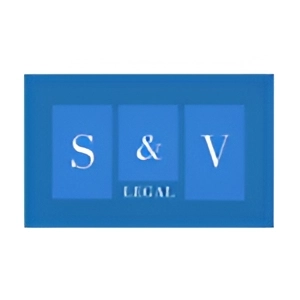The year 2021 brings with it a number of important legislative changes that will have an impact on employees and employers in the Czech Republic. We asked Prague-based labor law specialists Sniehotta & Vajda Legal to offer an overview of the most significant amendments to work-related legislation this year.
Changes to the labor code
Several amendments to the Labor Code have already come into force in the course of 2020. Other changes such as modified calculation of vacation time or newly instituted flexible working conditions are also coming into effect in Jan. 2021.
Vacation time will be calculated by hours not days
The calculation of the vacation time has been simplified to hours instead of days worked. Vacation time will be determined by how many hours an employee works during the week, not the number of weekly shifts worked. This change will particularly affect employees with irregular working hours and part-timers. For example, an employee who works 4 hours per day and 5 days per week is entitled to 80 hours of holiday per year. The minimum statutory amount of time off remains 4 weeks (160 hours).
Flexible working conditions
Both employer and employee can benefit from the implementation of a completely new shared workplace law. This allows the employer the option of employing two or more employees part-time to fulfill the role of one full-time job. In practice, this constitutes more flexible working conditions for the employees who can schedule their working hours themselves according to their needs. Otherwise, it is the employer who determines the schedules of working hours. Shared workspace must be agreed upon with all employees in writing in a special agreement.
Worker's compensation increased
The compensation for relatives of employees who have died due to workplace accidents or occupational diseases has been increased. The circle of relatives entitled to one-off compensation for survivors has been extended. The Labor Code has also introduced a new one-off compensation for non-pecuniary damage in the event of particularly serious damage to the health of an employee.
Changes related to wages and taxation
The abolition of super-gross salary
Income tax will be calculated only from the gross income of a person, whereas previously the tax base included social and health insurance contributions paid by the employer. The new legislation also introduces progressive income taxation of individuals at rates of 15% and 23% and abolishes the solidarity tax of 7%. The rate of 23% will be applied to individuals with an income exceeding 48 times the average salary (for 2021 it is CZK 1,701,168).
The increase of the annual allowance per taxpayer
The amount of the annual allowance per taxpayer increases to CZK 27,840 in 2021 and to CZK 30,840 in 2022.
Flat tax for freelancers
Freelancers (this does not apply to companies) are allowed to pay a flat tax instead of monthly contributions. The amount of the flat tax for 2021 is CZK 5,469 per month. This payment includes an income tax of CZK 100, a minimum social security insurance contribution of 2,976, and a minimum health insurance contribution of CZK 2,393.
The freelancer must meet several conditions. The maximum limit of annual business income to take advantage fo the flat tax is CZK 1 million. The flat tax is intended for non-payers of VAT (value-added tax).
This system reduces administrative and time burden. The only obligations for the freelancer are to register for the flat tax regime and pay monthly contributions. The freelancer does not have to file the tax return or overview of income and expenses. Freelancers must apply for this regime by Jan. 10 2021. To apply for this regime or read more about it visit www.financnisprava.cz.
Meal allowance
Both employers and employees can now benefit from the tax advantages for meals in a simplified way. Meal vouchers are very popular and frequently used in the Czech Republic. Employers are allowed to provide employees with a monetary form instead of traditional meal vouchers. This meal allowance remains exempt from tax and insurance payments for employers.
Raising the minimum wage
Beginning Jan. 1, the minimum wage in the Czech Republic increases. It influences both monthly wage, which is newly set to CZK 15,200 per month, and hourly wage, which increased to CZK 90.5. Those changes also affect the guaranteed wages (in the Czech Republic there is a system of division of types of jobs based mostly on their degree of difficulty).
Digitization
On a related note, a part of the new Act No. 12/2020 Coll., on the right to digital services, has come into force. Individuals have the right to communicate digitally with public authorities. Public authorities are no longer allowed to demand information from individuals which they can obtain from the public records.












 Reading time: 3 minutes
Reading time: 3 minutes 

































